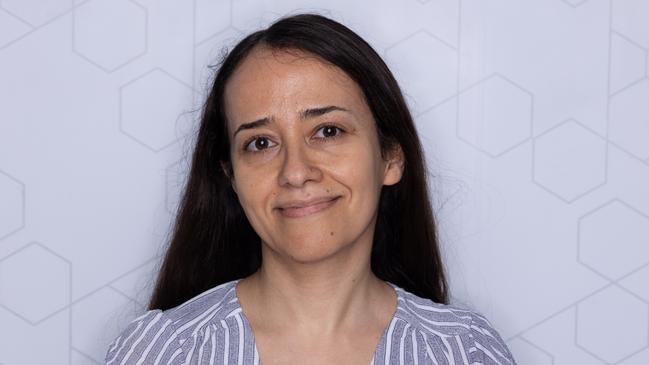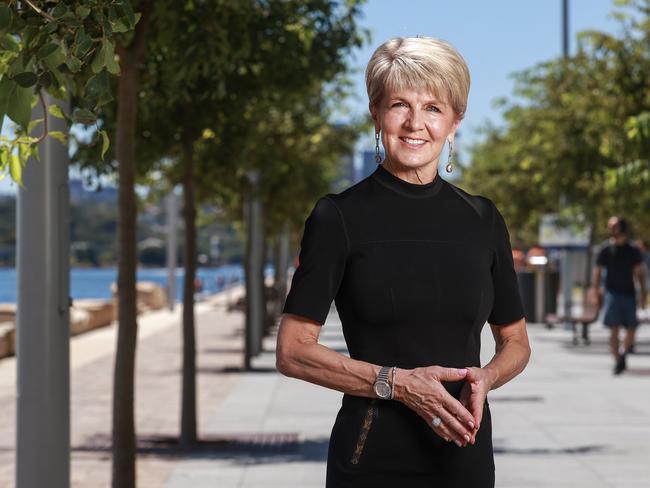Aspirin could help treat one of Australia’s deadliest cancers
A simple pill could extend the lives of women suffering one of Australia’s deadliest cancers, breakthrough research has found.
National
Don't miss out on the headlines from National. Followed categories will be added to My News.
Cheap and simple low dose aspirin may extend the lives of women suffering one of Australia’s deadliest cancers, breakthrough Australian research has found.
Scientists at the QMIR Berghofer Institute found women with ovarian cancer who used non-steroidal anti-inflammatory drugs (NSAIDs) like aspirin at least four days a week lived 2.5 months longer on average than occasional or non-users of the medications.
Some of the women using aspirin lived up to two years longer.
The drug most commonly used by the women was low dose aspirin, the study, published in the Journal of the National Cancer Institute found.
QMIR Berghofer Researcher Professor Professor Penny Webb said more work needed to be done but researchers suspected aspirin might be useful in treating the cancer because “we know inflammation is important in cancer”.

“Aspirin does a lot of a lot of good things, it affects platelets and release of other factors that might affect tumour growth, there’s laboratory data too suggesting that it might have a beneficial effect on cancer. So it seemed like a logical thing to look at,” Prof Webb said.
QMIR Berghofer Researcher Dr Azam Majidi who is the lead author of the study said “our findings suggest that frequent NSAID use might improve survival for women with ovarian cancer, regardless of whether they start taking the drugs before or after diagnosis”.
While the extra survival rate of 2.5 months “might not sound like a lot, it is significant for ovarian cancer. The disease is often diagnosed at an advanced stage when the prognosis is poor, and treatment options are limited.” Dr Majidi said.
Expensive new medications to treat the cancer often extended survival by 4-5 months, an improvement that is not orders of magnitude greater than found for aspirin, she said.
The women in the study had surgery, chemotherapy and other standard treatments for ovarian cancer and were incidentally taking aspiring to treat pain or to help prevent cardiovascular disease, she said.

Ovarian cancer is one of the deadliest tumour types and it takes the lives of over 1,000 Australian women a year.
Typically just 29 per cent of women diagnosed with the cancer are alive five years after their diagnosis.
This compares with breast cancer where 91.8 per cent of women diagnosed survive at least five years.
Ovarian cancer usually comes back after treatment in 80 per cent of women but in those who frequently used aspirin it did not come back as quickly, the study found.
“One of the exciting things about these results is that low-dose aspirin is affordable and relatively safe for use at a population-wide level,” Dr Majidi said.
The aspirin discovery has to be confirmed through a proper trial where some women are given low dose aspirin and others are given a dummy pill, Professor Penny Webb.
The findings were made through the world-first Ovarian Cancer Prognosis and Lifestyle (OPAL) study that has followed more than 900 Australian women newly diagnosed with ovarian cancer and asked them about which medications they used and questions about their diet and exercise.
EARLY DETECTION BIGGEST CHALLENGE, SAYS JULIE BISHOP
The Ovarian Cancer Research Foundation has awarded $1.8 million in grants to three researchers across Australia, writes Madeleine Bower.
The new grants will go toward improving early detection and treatment options for those diagnosed with ovarian cancer.
A combined team led by Professor Brian Gabrielli from the Mater Research Institute and the University of Queensland has been awarded one of the grants.
The team is working on a new treatment approach which increased the ability of the immune system to attack tumour cells, similar to immunotherapy. This is less toxic that chemotherapy.
OCRF ambassador Julie Bishop said early detection of ovarian cancer is the biggest challenge.

“Ovarian cancer is an insidious disease with vague symptoms, so about 70 per cent of women are already at an advanced stage when they are diagnosed,” she said.
“The lack of an early detection test remains the biggest barrier to improving survival rates. Research is our best hope.”
OCRF CEO Robin Penty said more than 1800 Australian women will be diagnosed with ovarian cancer this year, of which only 889 women will live for more than five years.
“Ovarian cancer is the most lethal female cancer yet remains critically underfunded. Unless this changes, mothers, wives, sisters, daughters and friends will keep dying,” she said.
“Patients usually receive a ‘one size fits all’ treatment plan of surgery followed by generic chemotherapy.
“Outcomes are extremely poor, with a five-year survival rate of just 49 per cent.”
Another grant recipient is Associate Professor Jason Lee and his team from QIMR Berghofer Medical Research Institute who is working on creating early detection tests.
There is currently no early detection test for ovarian cancer.
The third grant was received by a team from Griffiths University led by Professor Michael Jennings who discovered a sugar-based marker in blood and bodily fluids to predict early disease.
Originally published as Aspirin could help treat one of Australia’s deadliest cancers



